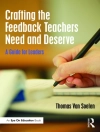In second edition, social work and mental health students and practitioners across the full spectrum of social service settings gain essential knowledge into cutting edge issues in the assessment and treatment of families from diverse cultural backgrounds.
Fully revised, with a full third of the book completely rewritten and each chapter significantly updated, the editors bring together the latest in multicultural family research and new and improved macro and micro ways of understanding and respecting the needs of new immigrants and diverse populations. Included is an important revision of Dr. Congress’s essential assessment technique, the culturagram.
New and updated chapters provide evidence-based and specialized perspectives, including:- Handling post 9/11 complications for immigrants and refugees
- culturally sensitive treatment ideas for Arab-American families
- Working from an Afrocentric perspective
- Understanding the needs of the new Russian, Asian, and Hispanic immigrants
- Helping diverse HIV-affected families
- Impact of ethnicity on incest treatments
- Suicide attempts with adolescents
- Importance of spirituality
Tabela de Conteúdo
‘
Foreword by Peter B. Vaughn, Ph D
Preface
Section One: Micro and Macro Approaches
Section Two: Culturally Diverse Families Across the Life Cycle
Section Three: Selected Culturally Diverse Populations
Section Four: Challenging Practice Issues
Section Five: Conclusion
‘
Sobre o autor
Manny John González, Ph D, is an associate professor and program coordinator of the doctoral program at the Phyllis and Harvey Sandler School of Social Work at Florida Atlantic University in Boca Raton, Florida.












